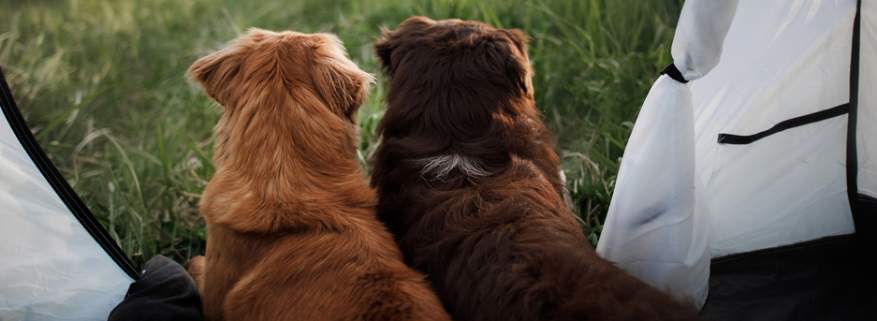Travelling with Your Pet

If you’re a pet lover you’ll appreciate the joys of holidaying with your dog. Travelling with your pets can save money on kennel/cattery fees, and you get to have your best friend with you.
But travelling with animals can be like travelling with kids. You have to make some allowances & do a little planning to make the journey a success.
- Visit the vet to ensure your pet is healthy and equipped to travel.
- Check your accommodation is pet-friendly. Book well in advance as pet-friendly places are in demand.
- Take a trial run with your dog to familiarise them with their travel crate or vehicle’s surrounds.
- Minimise the chances of your pet being sick while on the road by ensuring your pet has been fed at least three to four hours prior to departure.
- Stop every 3 hours for toilet and exercise breaks. Give your dog the chance to relieve themselves, get some fresh air, stretch their legs, and have a drink of water.
- Dogs shouldn’t hang their heads out of the window of vehicles while they are moving. They run the risk of being hit by objects. Cold air can also cause ear damage and possible lung infections.
- Never leave your pet alone in a parked car. Even if it’s only mildly warm, it can result in heatstroke after as little as 15 minutes.
- Use a seat belt or pet carrier in the car. Bring a lead and harness to control your pet.
- Bring their favourite food and lots of water when travelling.
- Take your dog’s regular bedding, water bowl, leash, doggy snacks, toys, and any other relevant equipment.
- Allow your dog to familiarise itself with its new surroundings, it helps alleviate any anxiety or stress.
- Try keeping to your dog's regular setup & routine, such as walks and meals, as much as possible.
- Do not leave your dog unattended at any stage of your stay. You don’t want to be losing your pet while on holiday in unfamiliar surroundings.
- Prevent any unfortunate incidents where your dog interacts adversely with other visitors or pets.
- Exercise your dog so they won’t be bored, will be less disruptive, and will sleep better too.
- Avoid disruptive barking. It’s important that you address the issue immediately to avoid disruption to other visitors. Try to calm your dog rather than yell at it, or take them on a quick stroll.
- Familiarise yourself with areas in and around where you are staying, and areas that may be off-limits to dogs.
- Pick up after your dog.
- Start your holiday with a dog that is clean and well-groomed.
06 May 2020

